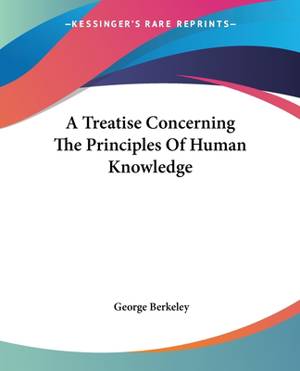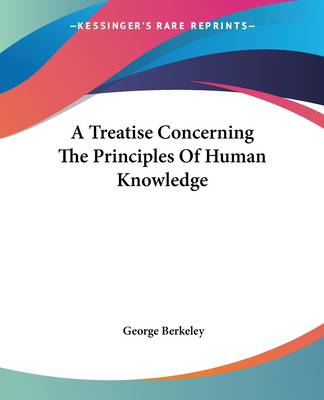
- Retrait gratuit dans votre magasin Club
- 7.000.000 titres dans notre catalogue
- Payer en toute sécurité
- Toujours un magasin près de chez vous
- Retrait gratuit dans votre magasin Club
- 7.000.0000 titres dans notre catalogue
- Payer en toute sécurité
- Toujours un magasin près de chez vous
27,45 €
+ 54 points
Format
Description
A Treatise Concerning The Principles Of Human Knowledge is a philosophical work written by George Berkeley, an Irish philosopher, in 1710. The book is an exploration of the nature of reality and the relationship between the mind and the world. Berkeley argues that the only things that exist are ideas and that there is no such thing as material substance. He posits that the world is made up of ideas that are perceived by the mind and that the mind is the only source of knowledge. Berkeley's philosophy is known as idealism, which asserts that the world is fundamentally mental or spiritual rather than material. He argues that objects only exist insofar as they are perceived by a mind and that they cease to exist when they are not perceived. Berkeley also critiques the notion of abstract ideas, arguing that they are not real entities but rather are simply mental constructs. The book is divided into three parts. In the first part, Berkeley lays out his argument for idealism and critiques the views of other philosophers such as John Locke. In the second part, he explores the implications of his philosophy for the nature of language, perception, and knowledge. In the third part, he addresses objections to his theory and offers responses to them. Overall, A Treatise Concerning The Principles Of Human Knowledge is a seminal work in the history of philosophy and a significant contribution to the development of idealism. It continues to be studied and debated by philosophers today.Philosophy being nothing else but the study of wisdom and truth, it may with reason be expected that those who have spent most time and pains in it should enjoy a greater calm and serenity of mind, a greater clearness and evidence of knowledge, and be less disturbed with doubts and difficulties than other men.This scarce antiquarian book is a facsimile reprint of the old original and may contain some imperfections such as library marks and notations. Because we believe this work is culturally important, we have made it available as part of our commitment for protecting, preserving, and promoting the world's literature in affordable, high quality, modern editions, that are true to their original work.
Spécifications
Parties prenantes
- Auteur(s) :
- Editeur:
Contenu
- Nombre de pages :
- 80
- Langue:
- Anglais
Caractéristiques
- EAN:
- 9781419103841
- Date de parution :
- 17-06-04
- Format:
- Livre broché
- Format numérique:
- Trade paperback (VS)
- Dimensions :
- 190 mm x 235 mm
- Poids :
- 154 g

Les avis
Nous publions uniquement les avis qui respectent les conditions requises. Consultez nos conditions pour les avis.






